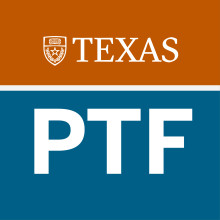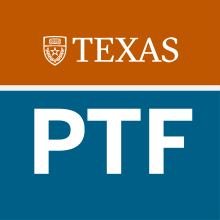Individual Fellow Initiatives

QR Learning for addressing social and racial injustice
The current proposal envisions developing alternative pedagogical materials for the “Measuring Racial Inequality” course, written in plain language and accessible to students from social sciences/humanities and underserved communities and families.

Disability Justice as Pedagogical Practice
Within social work curriculum, the topic of disability is either explicitly absent or medicalized. The lack of a rich understanding of disability as a cultural experience that intersects with other cultural experiences is concerning given our ethical guidelines of cultural competence and equity. Additionally, not only are students excluded via this omission, but so are faculty, staff, and social workers working in the field. Approximately a quarter of the population identifies as having a disability, yet our curriculum barely acknowledges their experiences.

Implementing Computational Modules into the Materials Science and Engineering Undergraduate and Graduate Curricula
The development of increasingly powerful computational resources has made computational competencies new core forms of literacy that should be formed as part of basic education across all STEM fields.

Building Rigorously Compassionate Syllabi: Fostering Individual Accountability and Community Care
Our project seeks to revitalize the syllabus document as a tool of inclusion. We are interested in making visible the “hidden curriculum” with which students often struggle. The syllabus language, grading and attendance policies, communication and assignment fulfillment methods, course calendar flexibility, course material formats – these can all contribute to developing personal accountability and investment in community.

Strengthening the Sustainability Studies Degree
Sustainability Studies graduated its first sizeable cohort in 2022, and the program has yet to undergo a comprehensive review. Conversations with students revealed their desire for better access to the professional field of sustainability across the sectors of non-profit, government, and business. This is an area that the current structure of the degree does not adequately address. To address these concerns, I am proposing a three-pronged approach. My first initiative is to build a database of internships across the three sectors mentioned above.

Inclusive STEM Communication for Engineering Students
The challenges facing modern engineers are more complex than ever. Current engineering issues such as
algorithmic bias, data security and privacy, and sustainability do not only require technically skilled engineers,
but also engineers who are conscious about structural inequities and biases.

Digital Research Apprenticeship: Projects For Intersectional Justice
Research and scholarship in Digital Humanities applies technology to humanities questions and subjects technology

Internship in the Media Industries
Internships have increasingly become a critical step in the college-to-career transition in the media industries and beyond.

Race, Democracy, and Global Social Justice: How Studying Inequality and Vulnerability can Transform the World
My initiative will achieve better learning outcomes in undergraduate and graduate students in History and the LBJ School by examining the intersection of history and contemporary policy, specifically its disparate impact on communities of color. Currently, departments, centers, faculty and students work independently of one another and lack valuable opportunities to collaborate. Genuine collaboration has evolved into a rare and difficult concept.

Mentored Research Learning: An Evaluation
Mentored research defies the traditional higher education approach, which separates research and teaching into distinct activities. Instead, mentored research fully integrates faculty research activities and student learning. In this approach, researchers do not simply carry out their research in isolation with a paid set of PhD-level research assistants. Further, students do not simply learn from in-class lectures or more traditional out-of-classroom experiences, such as study abroad.

Valuing Humanities Education at the University of Texas
For some time now the humanities have been “in crisis,” but the crisis is becoming acute: majors in nearly all humanities fields have been sharply declining, enrollments are down, hiring of tenure-track faculty is down, and, at some colleges and universities across the United States, whole departments are being eliminated. Here at the University of Texas, majors that are growing seem to be ones that promise a literal return on investment (invest money in a degree and get that money back, in the form of a well-paying job upon graduation) or at least suggest an obvious and practical use.

Medieval Digital Research Lab: A Pilot Upper-Division Course
The idea for this pilot course grows directly out of departmental and university goals to increase opportunities for Experiential Learning and for new technology exposure in the Humanities; and to involve more undergraduate students in original faculty research.

Data Analysis Tools: Integrating Computational and Statistical Techniques in the Environmental Engineering Curriculum
The goal of this project is to train the next generation of environmental engineers in computing and statistical techniques to solve big data problems. Current undergraduate students in the Department of Civil, Architectural and Environmental Engineering have little to no exposure to computational and statistical methods for data analysis (e.g., big data collected from sensor networks). I proposed to integrate computational techniques in several courses throughout the Environmental Engineering Degree.

Race and Curriculum Revision Project
While the U.S. is more racially open and culturally diverse than at any other time in its history, intolerance and marginalization—often around issues of race, culture and difference—continue to exist. This is punctuated in university settings where students of color find more access to opportunity, yet encounter socially and intellectually non-inclusive environments. UT-Austin stands at the forefront of concerns around race and equity, most recently with the Fisher decision and the current state lawsuit against UT-Austin regarding race discrimination in admissions.

CREEES Fusion Room: an Interdisciplinary Digital Workshop
This project entailed the creation of a curricular context and physical space for collaborative interdisciplinary teaching and research for faculty and students interested in Russian, East European and Eurasian studies. This was achieved in two ways. First, I transformed the required gateway course to our major, “Introduction to Russian, East European and Eurasian Studies,” which had been a disjointed “parade of faculty” course with disconnected guest speakers.

The Keys to Understanding History: Unlocking Digital Timelines
This project started out with a simple idea: From my original proposal, we noted that “Current historical timelines are not interactive, nor do they enable students to understand connections between different events. They are good at showing chronology, but are not good at illustrating how specific events are influenced by a whole host of different historical factors.”

